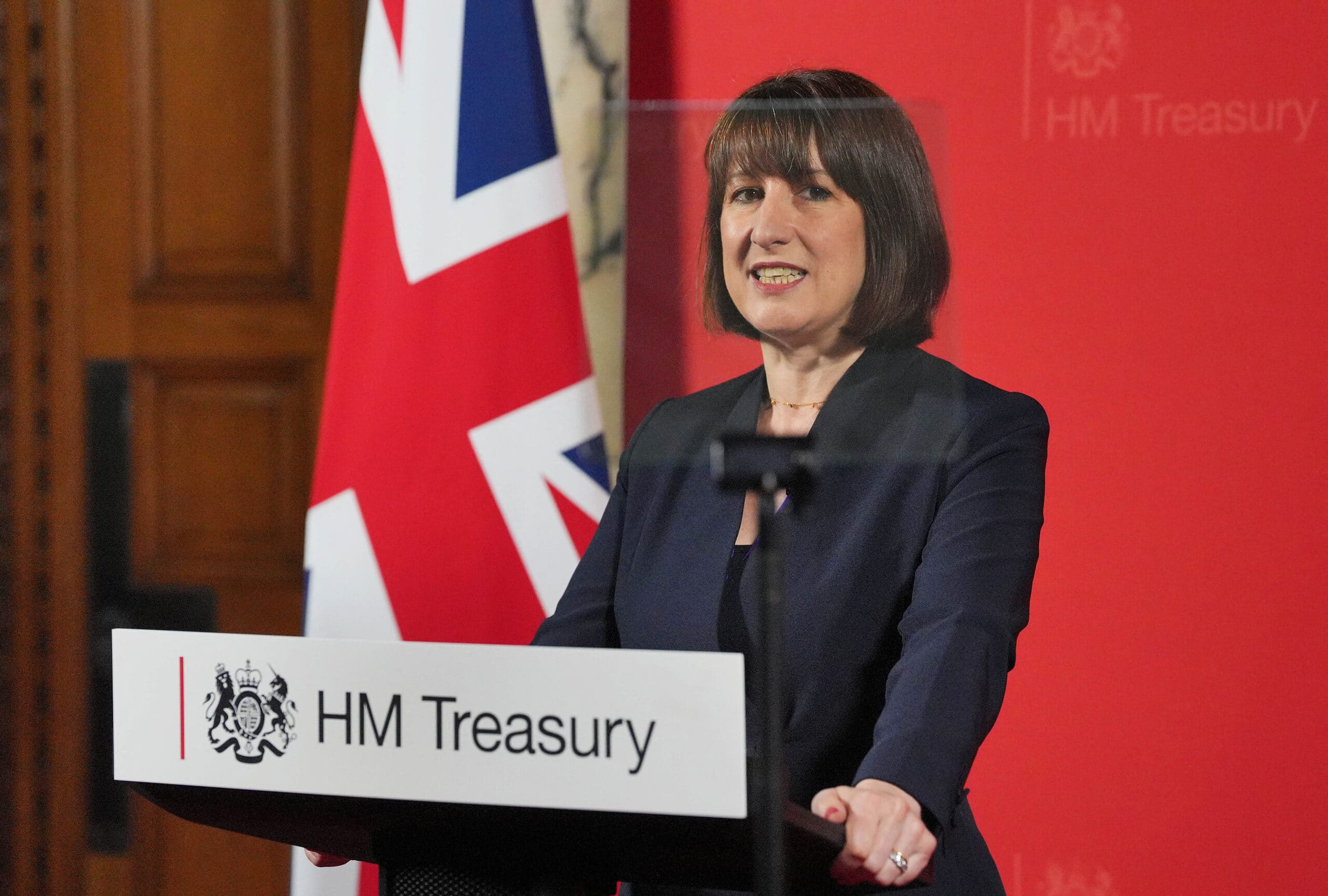
Britain’s Chancellor of the Exchequer Rachel Reeves reats from an teleprompter as she delivers a speech at the Treasury, to an audience of leading business figures and senior stakeholders, announcing the first steps the new Labour Government will take to deliver economic growth, in London on July 8, 2024. (Photo by Jonathan Brady / POOL / AFP)
London, United Kingdom — New UK finance minister Rachel Reeves vowed Monday to immediately “fix the foundations” of Britain’s economy, fueled by onshore wind power and house building, after her Labour party won power.
In her first major speech since being appointed the UK’s first woman chancellor of the exchequer by new Prime Minister Keir Starmer, Reeves said there was “no time to waste” on reversing “the legacy of fourteen years of chaos and economic irresponsibility” under Conservative rule.
READ: New British PM Starmer seeks to improve trade deal with EU
Reeves, 45, takes over as chancellor with Britain’s economy recently out of recession, the country’s inflation rate back to normal levels and as the Bank of England prepares to cut interest rates.
Centre-left Labour, which had put growing the UK economy at the heart of its manifesto, won last Thursday’s general election with a sizeable majority.
“New Treasury analysis I requested over the weekend exposed the opportunities lost” under the Conservatives, Reeves told business leaders in London.
She said weak growth meant Britain last year missed out on £58 billion ($74 billion) in tax revenues, impacting public services.
But Reeves stressed that growing the economy would occur alongside “robust fiscal rules”, with Britain’s debt having ballooned in recent years owing to huge state spending caused by the Covid pandemic and surging energy prices.
The chancellor said Labour would double onshore wind energy by 2030, helping the island nation move closer to net zero carbon emissions.
“That means immediately removing the de facto ban on onshore wind in England, in place since 2015,” the government said in a separate statement Monday.
Reeves said the reform of planning rules would hasten infrastructure building across sectors, helping it to also construct 1.5 million “affordable” homes in partnership with the private sector.